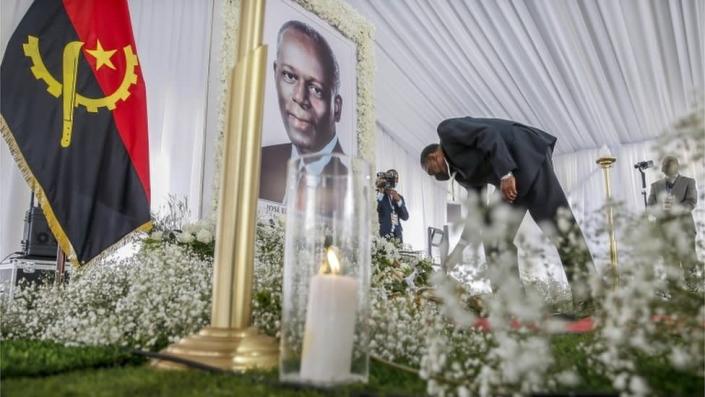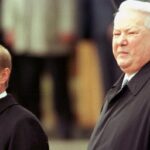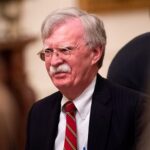
In our series of letters from African journalists, Ghanaian Elizabeth writes about the disputes that break out over the final resting sites of African leaders.


I am not sure I can offer a categorical theory yet, but it does look to me that being a president in Africa means there will be some controversy about your resting place when you die.
I have been following the dispute over where to bury Angola’s former President José Eduardo dos Santos who died in Spain on 8 July.
Current President João Lourenço and Mr Dos Santos’s fourth wife want to bring his body home for a state funeral and burial in a mausoleum – what we would call here in Ghana a befitting burial.
But his daughter Welwitschia “Tchizé” dos Santos wants a private funeral and a discreet grave site in Spain, where his children can visit.
She says she has the support of some of her siblings who face accusations of corruption in Angola and could be arrested if they return.
One of the Dos Santos children says the state has no constitutional obligation to assume responsibility for his father’s burial and the decision must rest with the family.
That argument about the state’s rights to a dead president’s body seems to be a recurring one.
Back in 2019 there was an eerily similar situation in Zimbabwe when Robert Mugabe died almost two years after his 37 years in power was ended by the current President Emmerson Mnangagwa, with the backing of the military.


Everybody thought Mr Mugabe would be laid to rest at the national Heroes’ Acre in the capital, Harare.
After all, Heroes’ Acre had been built by him and he had supervised the burial there of many of his former comrades in the liberation struggle, including Sally, his first wife.
Mr Mnangagwa started building an impressive mausoleum for the independence leader, but Mr Mugabe’s family would have none of it, not after he had been chased out of power and betrayed by his lieutenants.
The body, they argued, belonged to the family and after weeks of argument, the family won and Mr Mugabe, the undisputed hero of Zimbabwe’s liberation struggle, was buried in his home village, without any representatives of officialdom present.


Even Kenneth Kaunda, Zambia’s first post-independence president and the ultimate peacenik, could not find a resting place last year without a dispute breaking out.
According to the family, he wanted to be laid to rest next to his wife and not at the official site the government had designated.
For the moment, the family has not insisted on their rights and “KK” – as the late Mr Kaunda is affectionately known – is lying at the Embassy Memorial Park in the capital, Lusaka.
From exile to honours
These disputes about restless dead bodies are not new. Over here in Ghana we are well practised in such matters.
Our first leader – Kwame Nkrumah – died while receiving medical treatment in Bucharest in Romania.
He was first buried in Conakry in Guinea, where he had been living in exile. His body was later brought to Ghana. There was a state funeral in the capital, Accra, and he was laid to rest in his home village of Nkroful.
Years later, a befitting mausoleum was built in Accra and the body was brought and interred there.


Every once in a while, there are murmurs from his family in Nkroful asking for his body to be returned to them.
In 2012, our President John Evans Atta-Mills died in office and finding a resting place for him was not a straightforward issue.
Some members of his family wanted the body to be sent to his home village for burial, that argument did not find much traction at the time.
The first place where the government dug a grave for his interment was abandoned as unsuitable. He was eventually laid to rest in a park.
The understanding then was that the park would serve as the resting place for all presidents of Ghana.
Since then, another former president – Jerry Rawlings – has died.


Not only was he not taken to where President Atta-Mills lies, but his family in his home village accused the government of having appropriated the body.
He was buried at a military cemetery in Accra, with full military honours.
A few weeks ago, we marked the 10th anniversary of the passing of Atta-Mills.
There are still arguments about his tomb: who should look after it, and what should be inscribed on it.
There are also members in his family who still want the body exhumed from the state-sponsored park in Accra and taken to his home village to be laid to rest.
So I have to conclude that one of the hazards of being a president in Africa is that there will be no resting place for your body when you die.
More Letters from Africa:
Follow us on Twitter @BBCAfrica, on Facebook at BBC Africa or on Instagram at bbcafrica






